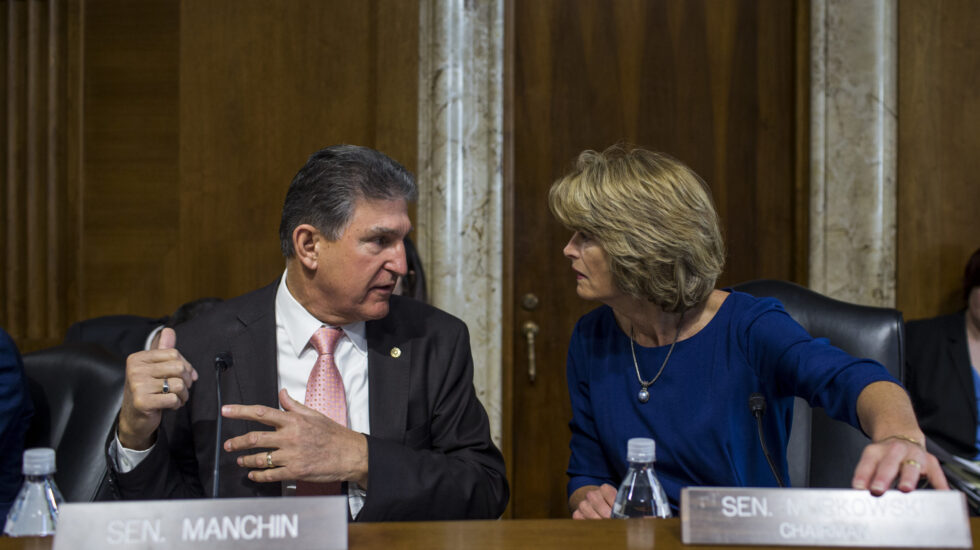A group of ten moderate senators led by West Virginia Democrat Joe Manchin and Alaska Republican Lisa Murkowski are ready to pitch the White House on a trillion-dollar infrastructure package that may be the last hope of striking a bipartisan deal for one of President Biden’s key agenda items. But regardless of where those talks go, it looks like Democrats are preparing a double-pronged approach to infrastructure
The lawmakers have been negotiating the legislation since last week, when the president announced his talks with a GOP group were dead. These new talks seek to find a compromise that both the White House and other lawmakers can live with, to advance a series of bills aimed at improving U.S. roads, bridges, pipes, ports and Internet connections.
It’s far from a sure thing anyone signs on to it.
Already, some Democrats have questioned if the nearly $1 trillion, five-year package is big and robust enough. According to The Washington Post, the White House also had “questions” about the potential changes to the gas tax that would be used to finance the new proposal, but Maine Senator Susan Collins said Sunday there will be no gas tax hike in this bipartisan proposal.
However, Senate GOP Whip John Thune told CNN’s Lauren Fox the proposal as it stands is one Republicans could support.
It also appears that Democrats are working behind the scenes on another infrastructure bill that will be ready to go no matter what happens with the bipartisan legislation. Senate Majority Leader Chuck Schumer strongly hinted at it with a brief tweet sent Monday evening.
"Senate Majority Leader CHUCK SCHUMER has been preparing for this possible two-pronged approach for a while. “We all know as a caucus, we will not be able to do all the things that the country needs in a totally bipartisan way,” he said last week. “But we’re not going to sacrifice the bigness and boldness in this bill. We will just pursue two paths and at some point they will join.”
Essentially, the idea is if Democrats agree to this scaled-down bipartisan plan — and provided Republicans go along with it — then they would need assurances from Manchin and Arizona Senator Krysten Sinema that they would back a more ambitious plan later that would be passed through the process of reconciliation.
More context from Politico:
"Some Democratic leaders are concerned that if they endorse a bipartisan deal like the pair of centrists want, the duo will play hard to get when it comes time to go Democrats-only. A reconciliation package would likely include sweeping climate provisions, a massive investment in family and child care and higher corporate taxes. “There would have to be clarity that we’re getting the second package. Manchin and Sinema are going to have to give assurances to BERNIE[SANDERS],” said one senior Democratic source."
According to NBC’s Sahil Kapur, Manchin is OK with Schumer’s strategy of following up the bipartisan bill with a bigger, bolder package passed without GOP votes.
That’s substantial news on its own, given Manchin’s repeated endorsement of preserving the Senate filibuster rule. The other senator that has stood in the way of Biden’s infrastructure ambitions, Arizona’s Sinema, appears to agree with this dual-track approach as well. Kapur shared this statement from Sinema’s office that indicates she’s open to a budget resolution:
“Those conversations are ongoing and Kyrsten will give careful consideration to any idea that can strengthen Arizona’s economy.”
The Democrats are on the clock, with their declared deadline of July for dealing with infrastructure fast approaching.
The White House meanwhile, has gone on the public relations offensive by launching a series of video essays aimed at promoting the importance of the American Jobs Plan and its infrastructure goals across social media. The very first film in the series focuses on the crumbling infrastructure in Mitch McConnell’s backyard.
The collapsing roads, lack of broadband access, and contaminated water in Eastern Kentucky are shown in stunning detail. More of these films spotlighting other areas around the country will be unveiled in the coming weeks as part of the Biden Administration’s push to boost public support for its ambitious legislation.
